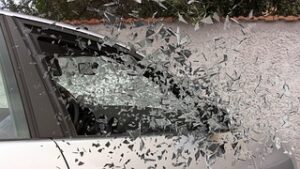Three Common Mistakes To Avoid When Pursuing Personal Injury Benefits After A Maryland Car Accident
Personal injury protection benefits, typically referred to by the acronym PIP, are mandatory*, first-party insurance benefits in Maryland, unless waived, affirmatively, by you. This means that they are:
- included on your car insurance policy
- you paid the premiums, and
- they are payable on a no-fault basis
Benefits will typically cover a portion if your lost wages and your medical expenses up to $2,500, or more if you purchase more coverage. Not surprisingly, after a motor vehicle accident, many individuals find themselves in the unfortunate circumstance of having to miss work during their recuperation, and most likely having incurred some medical expenses and perhaps extraordinary medical expenses. Personal injury protection benefits are there for precisely these purposes and to assist in meeting these expenses.
I Attorney Eric T. Kirk always suggest that individuals notify their insurance company of the accident and set up the PIP claim right away. Although the law allows a fairly substantial period of time to pursue PIP benefits -with a one-year statute of limitation- it just makes sense to file the claim in the days immediately after an accident to ensure the timely provision of PIP benefits.
I frequently see individuals who fail to fully document their claim for expenses and reimbursement in connection with their PIP claims.
Many insurance companies will want to examine the medical records concerning injuries sustained in an accident, as well as the medical billing. Many times, insurance companies insist on complete billing with all procedure and diagnostic codes included in a preferred format. In some instances, these can be difficult to obtain. I’ve seen instances where individuals have lost wages as a result of injuries sustained in an automobile accident, but have had great difficulty in obtaining wage their PIP loss benefits due to a want of proper documentation.

Self-employed individuals contractors and individuals who derive substantial income from tips often find it difficult to fully document their wage loss claim. Although personal injury protection benefits are considered first-party benefits, which means they are your insurance benefits for which you have paid, does not necessarily mean that your insurance company is going to bend over backwards to make sure you get the benefits. It is the responsibility of the “insured” -in insurance jargon- to fully document and support each aspect of the personal injury protection claim. An assumption that the insurance company will do this for you, or a failure to fully document the full extent of the medical expenses or the wages lost, can result in a loss of those benefits.
*The Assembly has recently enacted a change in this process. Marylanders now have the option of carrying less insurance. An insured may now reject personal injury protection altogether, under specific circumstances. See Insurance Article, Md. INSURANCE Code Ann. § 19-506.1.



